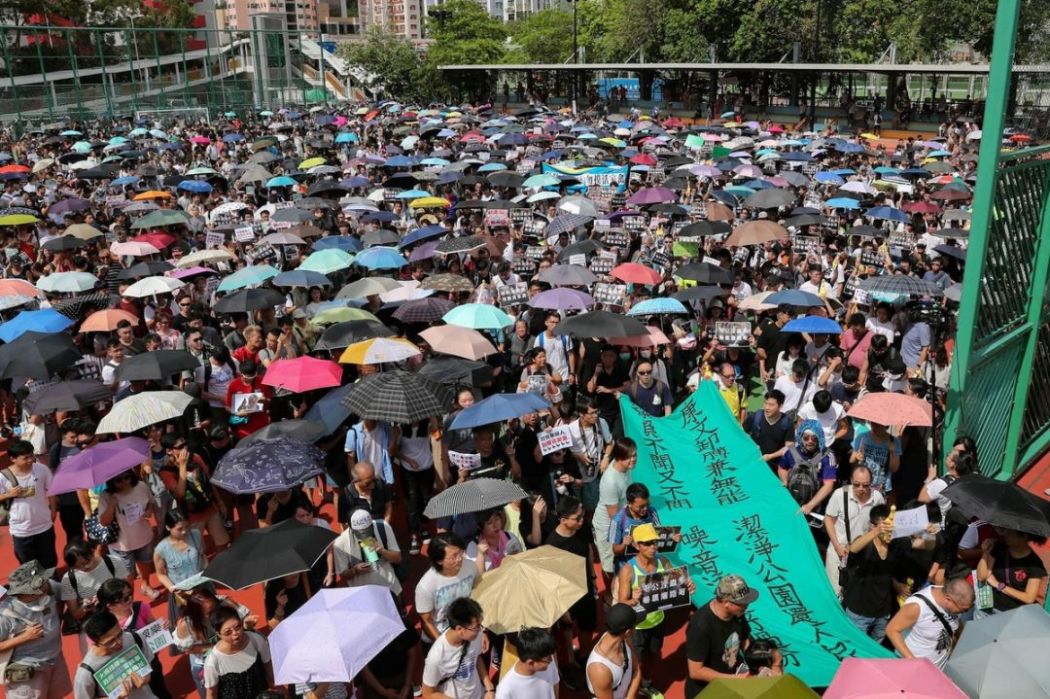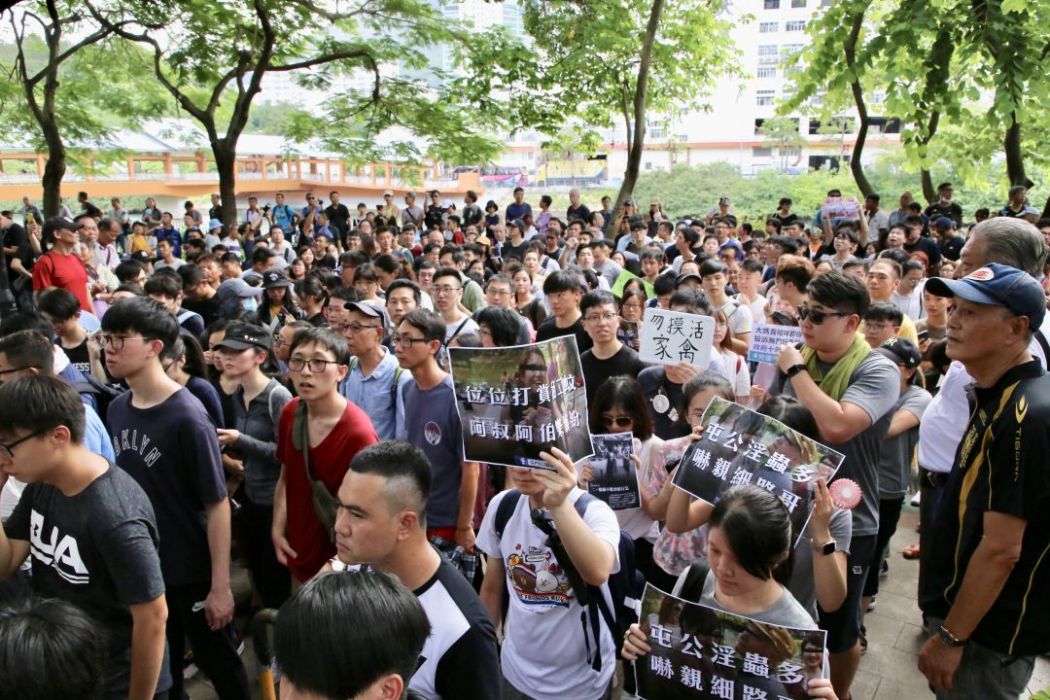A park in Tuen Mun became the latest protest flashpoint on Saturday, as thousands marched in opposition to middle-aged female performers accused of causing a disturbance in the neighbourhood.
The march escalated in the late afternoon, with the police using pepper spray and protesters gathering outside the local police station.

The Tuen Mun Park Sanitation Concern Group, which helped organise the event, demanded that the Leisure and Cultural Services Department (LCSD) tackle the problem of noise pollution, ban obscene activities and beggars, and to make sure the public space can be used by people of different age groups.
Group convenor Michael Mo criticised the “dai ma” – Cantonese slang for middle-aged women – who sing and dance to Putonghua pop songs in the self-entertainment zone of the park. Their audience often consist of elderly men, some of whom offer money to the women as “donations.”
“The dai mas of Tuen Mun park have caused a lot of nuisance to residents and park-goers, including problems of noise, as well as alleged begging and sex work,” Mo said.
“The LCSD is not enforcing the existing regulations and is turning a blind eye… which only makes matters worse.”

Protesters started marching at around 3pm from the nearby San Wo Lane Playground, and police opened up the Tuen Mun Heung Sze Wui Road to accommodate the large crowds.
Organisers initially told the police to expect 200 people, but said after the march that over 10,000 people showed up. Police put the peak turnout figure at 1,800.
Many of the slogans satirised those who watched dai ma performances: one read, “Tuen Mun Park has a lot of lechers, this scares our youngsters.” Other placards read “Reclaim Tuen Mun.”
Heated arguments broke out between protesters and some elderly men at the park, and crowds surrounded a public toilet after one suspected dai ma escaped inside.

Hundreds of protesters taunted the woman inside the public toilet by shouting “perform” and waving cash and red packets. The standoff lasted over two hours, and the woman had to be escorted out by police at around 6:30pm.
Demonstrators also clashed with a man who was accused of assaulting marchers. The man was later escorted away by police to a taxi outside the nearby V City shopping mall, but a group of protesters chased after him and tried to stop the taxi from leaving.
Pepper spray used in Tuen Mun after someone allegedly attacked protesters and was being led away to a taxi by police. Protesters tried to block the taxi from leaving but were forced back pic.twitter.com/Yfv4mP3ekG
— Aaron Mc Nicholas (@aaronMCN) July 6, 2019
Police displayed a red warning flag and used pepper spray against protesters, which led some to chant slogans criticising the police for selective law enforcement.
Other people who were similarly accused of disrupting the march were escorted into police vans, including a man who was accused of taking pictures of protesters’ faces.
Crazy scenes at the protest in Tuen Mun – literally no idea what is going on. Vid from Telegram. pic.twitter.com/EXJoiv1X6Y
— Jack Hazlewood (@JackHHazlewood) July 6, 2019
Groups of demonstrators occupied roads and moved towards the Tuen Mun police station at around 8pm, where a standoff ensued with officers outside the building. The crowds eventually dispersed around 10pm.
After the march, the LCSD said in a statement that it had received 342 complaints in relation to performances at Tuen Mun Park, of which 80 per cent were noise complaints. The rest involved indecent behaviour and receiving monetary rewards.

Department officials would first verbally warn offenders, and then consider prosecution under the Pleasure Grounds Regulation if the warnings were ineffective, the LCSD said.
The LCSD added that it had already proposed amendments to the Pleasure Grounds Regulation, and has submitted the relevant documents to the Panel of Home Affairs at the legislature.
